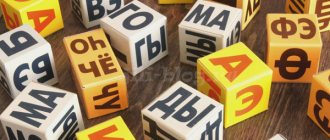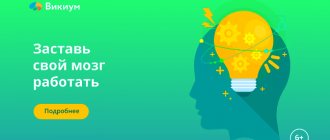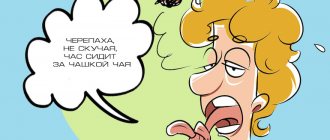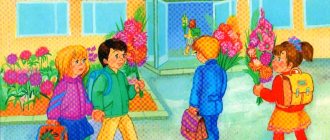Intellectually developed people are not born. They become the result of long and persistent self-development and self-education.
Of course, for some it is easier to learn and absorb new information, but for others it is difficult. But you should never give up if you want to be considered an intelligent person.
Books to improve intelligence should become constant companions for those who want to constantly feed their mind, pump it up and train it.
If you are one of these people, then you are doing absolutely the right thing, because you will always have an advantage over fools who do not like to read and do not want to develop.
Ryan North. How to invent everything. Create a civilization from scratch
BUY A BOOK
An intelligent person is often distinguished by a subtle understanding of the world order. The book “How to invent everything. Create a civilization from scratch" will just help you better understand how humanity moved from hoeing and subsistence farming to high technology and the ability to buy cola in the nearest supermarket.
The book will also tell you how to filter water, create antibiotics, assemble a radio and a steam engine. And he’ll even give you a beer recipe! In general, an indispensable book in the household. And in the event of a sudden apocalypse, he will also help restore civilization with his own hands.
Paulo Coelho. Archer
BUY A BOOK
Paulo Coelho is a master of heartfelt prose. For several decades now, his books have become a revelation for those who are looking for the meaning of life and trying to understand their nature. Coelho’s new work “The Archer” is written in the best traditions of the Brazilian writer. This is an inspiring philosophical parable about finding your place in life, touching and poetic.
The plot centers on the great archer Tetsuya and his young student. The master shares the rules that must be followed by a person who decides to become a shooter. Of course, a bow, arrows and a target are a metaphor for the life of each of us. The book will tell you how to walk your great path without fear and regret.
Oliver Sacks. The man who mistook his wife for a hat
BUY A BOOK
Have you always wondered how the human brain works and what illusions it is capable of? Then The Man Who Mistook His Wife for a Hat is a must-have on your bookshelf. Its author, Oliver Sacks, is a famous British neurologist who also has a talent for explaining complex biochemical processes in a simple and interesting way.
The book "The Man Who Mistook His Wife for a Hat" includes several case histories of Sachs' patients. The doctor explains in accessible language how a damaged brain can change the perception of the world and how the lives of people with similar diagnoses turn out. The book is interesting not only from a scientific point of view - many of the stories will not leave you indifferent.
Books to increase intelligence - will they help?
It’s hard to believe that there are people who doubt that books help develop intelligence or are not at all sure that the brain can be trained.
Believe me, reading (if it is not stupid pulp literature) can work wonders on a person.
1) Increasing intelligence: fiction or fact?
The word “intelligence” comes from the Latin lexeme intellectus and is translated as understanding, concept, reason, sensation.
By characterizing a person as an intellectual, we definitely consider him a very smart person.
And yet intelligence is a broader concept than mind and includes:
- the ability to quickly adapt to new circumstances;
- the ability to instantly navigate a situation;
- penchant for analysis;
- speed of learning;
- good memory and intuition, etc.
Already from birth, a child can be intellectually gifted. This is reflected in his ability to learn new information faster than his peers. But even if nature has endowed you with average or below average intellectual abilities, this does not mean that you need to give up on yourself.
Increasing your intelligence is similar to working on your body: you work in the gym to have a beautiful, toned figure. The mind can also be trained, but not with dumbbells, but through the use of other tools.
The most effective way to increase your intellectual level is by:
- books;
- educational games;
- information analysis;
- learning something new;
- special exercises.
You can work on your intellectual abilities at any age.
2) How can you improve your intelligence with the help of books?
Books are the faithful friends of smart people, opening up new worlds to them, providing them with useful information, allowing them to spend their time in an interesting but useful way, and serving as teachers and mentors.
With their help, you can do a lot, for example, turn from an uneducated, stupid person into a real intellectual.
There are several ways to increase your intelligence with books:
- Reading.
Yes, you just read and at the same time train your brain and memory. If you are an inexperienced reader, then you can start with simple and understandable literature. Even serial novels will do for starters.
Gradually begin to build momentum, filling gaps in the school curriculum, getting acquainted with literary novelties and bestsellers. When your mind is strong enough, you can begin to read more complex literature: scientific, philosophical, historical, etc.
- Learning by memory.
There is no simpler and more effective way to train your intellect and memory than memorizing text. Start with poems, such as those you once learned in school and then forgot.
Then memorize the classics you like, which you can recite as a souvenir on occasion, for example, to your beloved girl in a romantic moment. When rhymed poetry becomes easy to memorize, move on to blank verse and prose passages.
Memorizing dates, names, geographical names, etc. contributes to the development of intelligence.
- Receiving supporting information.
I'll explain with an example. For example, you are reading the historical story “Taras Bulba” by N.V. Gogol, and at the same time you are interested in Google or printed sources: the biography of the author, who was the prototype of Taras Bulba, what was the life and habits of the Zaporozhye Cossacks, what kind of Ukrainian-Polish war was this, how the work was published, in what editions, etc.
That is, not only the plot of the story is stored in your head, but also numerous additional data.
Vladimir Nabokov. Pinhole camera
BUY A BOOK
Nabokov was nominated four times for the Nobel Prize in Literature. The writer's books are famous for their unpredictable plots and subtle work with the emotions of the characters. The novel “Camera Obscura” fully corresponds to Nabokov’s signature style and can rightfully be considered one of the most outstanding works of the 20th century.
The main character of the novel “Camera Obscura” is art critic Bruno Kretschmar. His life was wonderful: an outstanding career, beloved daughter and wife. However, everything changes when Bruno meets a poor young girl working as an usher at the cinema. He falls in love and this feeling seems to him to be the only real one in the world. However, the name “Camera Obscura” is not accidental - everything that happens is just a distorted and inverted image of reality.
List of detectives for the development of logic and deduction
Fans of detective stories are also lucky; this genre of literature is useful for developing the mind, logic, deduction and ingenuity. Writing descriptions for detective stories is like investigating half the battle and giving the rest to the reader, so we will simply list outstanding works that have an interesting plot and train the brain.
- "Guess the Number" John Verdon.
- "Sharp Objects" by Gillian Flynn.
- "The Voice of the Night Bird" by Robert McCamon.
- Crimes of the Past by Kate Atkinson.
- "Golden Scales" Parker Bilal.
- "Over the Settled Graves" by Jess Walter.
- "The Crossing" by Ellie Griffiths.
- "Thirteen Hours" by Deon Meyer.
- "The Collini Case" Ferdinand von Schirach.
- Crimes of the Past by Kate Atkinson.
- "Judgement Day" Kurt Aust.
If you really love the detective genre, we recommend reading the article The Best Detectives: Books Loved by Readers.
Jane Hawking. Be Hawking
BUY A BOOK
We are sure that you are familiar with at least one work of Stephen Hawking. If not, we recommend starting with A Brief History of Time. This unique book opens up the opportunity for the average reader to understand astrophysics. But now we want to recommend to you the publication “Being Hawking,” written by the first wife of the brilliant scientist after his death.
The book tells the story of Stephen Hawking as his family knew him. Despite his health problems, the scientist was able to build an outstanding career, teach millions of people about space from a scientific point of view, and raise a family. “Being Hawking” helps you look at life from a new angle and understand that the real obstacles to happiness and development are only in our own minds.
What books are best to read to improve intelligence?
Reading any book helps you become smarter. Why, even glossy magazines provide some kind of food for the brain. But still, if you need a strong effect, it is better to read serious specialized literature.
Specialized books for increasing intelligence.
Speaking about specialized literature, I mean those books that were written specifically for people who care about their intellectual development.
That is, these are publications with:
- explanations of what intelligence is and how to develop it;
- tests so that you can assess the level of your intellectual development;
- special exercises, tasks, games, programs, etc.
Here is a list of the 5 best specialized books:
| № | Name | Description |
| 1. | Roger Sipe "Brain Development" | The book was written by a coach who has long been involved in the development of intelligence. In addition to advice on what you need to bring into your life and what it’s better to get rid of, the book contains the author’s practices. |
| 2. | Carter Philip "Develop your intellect" | The author did not waste time retelling common truths, but concentrated as much as possible on providing his readers with tests, puzzles, riddles, exercises and other things that really help pump up the brain. |
| 3. | Deepak Chopra "The Perfect Brain" | Doctor and author Deepak Chopra, co-authored by neuroscientist Rudolf Tanzi, describes the mechanism and abilities of our brain, and also gives practical recommendations on how to cope with many of the problems of modern society: anxiety, depression, memory loss and dissatisfaction with one's life. You will also learn exactly how to think so that what you think about comes true. |
| 4. | Olga Kinyakina “Brain 100%” | The author proves that we ourselves “lull” our brains by watching stupid TV series, reading useless literature, doing monotonous work, and also offers a number of puzzles, exercises, tasks to “wake up” and develop our intellect. |
| 5. | John Medina "Brain Rules" | If you don't want to do special exercises, but still want to improve your intellectual abilities, this book is for you. The author explains how our brain works and develops 12 rules that help improve its efficiency. |
Philosophical books to increase intelligence.
Philosophical treatises cannot be called light reading, which is why they are great for raising your intellectual level.
Actually, you can read the works of any philosophers, both ancient and modern. But there are several books that are most suitable for achieving this goal.
| № | Name | Description |
| 1. | Friedrich Nietzsche "Thus Spake Zarathustra" | The book is partly a poetic, partly philosophical treatise, revealing the position of Nietzsche himself regarding what place a person occupies among the society around him, how he understands his life, how he travels, how he understands himself and the world around him. The book pays attention to a person’s communication with nature, with himself and with the people around him. The idea of having to go your own way is glorified. |
| 2. | F. La Rochefoucauld "Memoirs" | La Rochefoucauld is not a classical philosopher, but a writer whose works have a moralistic and philosophical aspect. That is why reading them is not only useful, but also interesting. The work also has historical value, as it is considered an important source of information about the times of the Fronde. |
| 3. | Immanuel Kant "Critique of Pure Reason" | This work is considered one of the most fundamental works in the history of philosophy and the main work of the philosopher. The key issue of the Critique is the study of the cognitive capabilities of the mind, in isolation from knowledge obtained empirically (experimentally). In the course of the study, the philosopher covers issues of space and time, the possibility of proving the existence of God through reason, etc. |
| 4. | Arthur Schopenhauer "The World as Will and Representation" | Schopenhauer's main philosophical work. In this work, A. Schopenhauer puts forward the following concept: at a certain stage of development, two different worlds arise. One does not exist objectively, but only in our imagination. What we call reality (nature, society, culture, history and our lives) is only an appearance, a play of the imagination. The second, true world is the world of a secret, invisible essence, will, this is Kant’s “thing in itself.” |
| 5. | Tao Te Ching | You should not focus only on the works of European thinkers. This book, often attributed to Lao Tzu, is the source of Chinese wisdom. The main idea of this work - the concept of Tao - is interpreted as the natural order of things, which does not allow outside interference, “heavenly will” or “pure nothingness”. |
Scientific books to increase intelligence.
It is very difficult to start reading scientific works without preparation, especially if you, for example, are a philologist and decide to read about how the hadron collider works.
It is better to load your brains gradually, starting with reading popular science works that will give you food for thought, provide you with new knowledge, but will not cause you to turn away from scientific literature.
| № | Name | Description |
| 1. | Stephen Hawking "A Brief History of Time from the Big Bang to Black Holes" | In his book A Brief History of Time, the famous English physicist Stephen Hawking tries to answer questions that interest us all: where did the Universe come from, how and why did it arise, what will be its end (if at all) - and he does it in such a fascinating and accessible way that that the book, written in 1988, is a bestseller to this day. |
| 2. | Richard Dawkins "The Selfish Gene" | “The Selfish Gene” is the first and most outstanding book by Richard Dawkins, which remains his most famous work and even after 40 years is intriguing and does not lose its relevance. “We are survival machines—self-propelled works, blindly programmed to preserve selfish molecules known as genes,” is how the author characterizes humans. |
| 3. | Isaac Asimov's Guide to Science | The popular science book by biochemistry professor Isaac Asimov is dedicated to the history of the development and present of the natural sciences. The book presents the main problems and issues of science from antiquity, the Renaissance and up to the present (last edition 1983). |
| 4. | “The Future of Science in the 21st Century” (edited by J. Brockman) | The book about the prospects for science in the next half century consists of essays by specialists who work in a wide variety of fields, from chemistry and biology to psychology and philosophy. You can find useful information on almost any topic. |
| 5. | Charles Darwin "Origin of Species" | Even if you are a believer and are confident in the divine origin of homo sapiens, this legendary book is worth reading. The work of the English naturalist Charles Darwin, published on November 24, 1859, is one of the most famous works in the history of science and fundamental in the field of evolutionary teaching. |
Choose the right books and become smarter.
How to develop intelligence? The best book selection.
John Fowles. Magus
BUY A BOOK
“The Magus” is the fundamental work of the outstanding British writer John Fowles. You can re-read it again and again and each time find new meanings laid down by the author. The novel tells about the secrets of the Greek island of Thraxos, where an eccentric millionaire conducts merciless psychological experiments.
John Fowles himself said that “The Magus” adapts to the reader and can be interpreted in any way. However, this does not stop the author’s fans from searching for the true meaning and makes them re-read the novel again and again. Can you solve the mysteries of the island of Fraxos? And what will meet you at the end of this adventure?
David Lynch. Catch a big fish
BUY A BOOK
There will definitely come a time in your intellectual development when you will need to catch the “big fish.” It can be anything: inspiration to create a brilliant work, a business idea that will bring in millions, or courage to change your own life.
The famous director David Lynch figured out the secret to catching the “big fish” and wrote a book about it. According to him, the key to changing reality lies in transcendental meditation. Lynch has written a meditative book that will help everyone get acquainted with this practice and develop creative abilities. Together with the author of Twin Peaks, you will see what previously remained invisible, hear what has always been beyond the audible and open a door whose existence you did not even suspect.
Factors affecting brain function
Despite the fact that each of us has certain innate abilities, these qualities are dynamic and can change throughout life depending on conditions, age and individual characteristics.
- Health. An important role in the functioning of such functions as long-term and short-term memory, thinking, attention is played by the individual’s hormonal system and the saturation of the body with useful vitamins and minerals. A striking example of this is pregnant women. There are many jokes about their forgetfulness and inattention, but the reason lies precisely in hormonal changes.
- Physical activity. Moderate physical activity has a beneficial effect on the functioning of the whole body, as well as on brain function. During exercise, blood circulates faster, oxygenating internal organs and the brain. The body itself will tell you how to choose the appropriate type of physical activity: after exercise there should be no desire to fall dead on the bed and wake up in the future, there should be vigor, increased tone, and improved mood.
- Environment. The psycho-emotional state actively influences the development of a person’s intellectual abilities. Children who grow up in favorable family conditions show better results than children with psycho-emotional problems from disadvantaged families, even at the same intelligence levels.
- Healthy sleep. The central nervous system rests only during sleep at certain times of the day.
- Proper, balanced nutrition. A lack of certain vitamins can cause inattention and forgetfulness.
- Microclimate. The premises must always be ventilated and maintain optimal levels of humidity and temperature.
Erich Fromm. To have or to be?
BUY A BOOK
Erich Fromm had a significant influence on the development of sociology, psychology and philosophy of the 20th century. Most likely, you are familiar with his book “The Art of Loving,” where the scientist explores the phenomenon of love and tells how to love and be loved from a psychological point of view. “To Have or to Be” is an equally interesting work, where the focus is on a materialistic society and relationships formed according to the principle “You - to me, I - to you.”
Fromm explores the difference between being and having. The first implies true experiences of every moment of life in its entirety, the second puts material culture at the forefront. Erich Fromm, in his work “To Have or to Be,” tries to understand what is more important and to help the reader understand this issue.
Why are books needed for intelligence?
In order to pump up your brain, you don’t need to visit doctors and psychologists; scientific and psychological literature will help in this matter. To increase your intelligence, you don’t need to waste energy and time reading ordinary, mediocre books; it’s better to buy a complex, meaningful manual.
“Artificial memory,” continues the anonymous author, has two basic components: images and places. Images represent the content of what a person wants to remember. The places—or loci, 30 as they are called in the original Latin—are where these images are stored. The idea is to first mentally recreate a space that you know well and can easily imagine, and then fill that imaginary space with images of what you want to remember. The Romans called this method the method of places. Later they began to call it the palace of memory.” (Einstein walks on the moon. The science and art of memory)
“The brain is capable of storing only connections; objects in the surrounding world and products of brain activity contain connections. There are connections in the apple. The connections are in the telephone number and historical date. What is primary: the object or the connections located in it? This is a difficult philosophical question. So let's skip it. The main thing for us is that the brain only records connections. The rest is not important for memorization.” (Textbook of Mnemonics)
These quotes from different books reflect the essence of the problem. This literature develops thinking, promotes active brain function, and also improves memory. Let's consider which books for developing intelligence and vocabulary can help you.
Medicine for smart people. Modern aspects of evidence-based medicine for thinking patients
BUY A BOOK
Forewarned is forearmed! This also applies to health. The book “Medicine for the Smart. Modern aspects of evidence-based medicine for thinking patients” was written by the best Russian doctors about the most common diseases that active young people may encounter.
“Medicine for smart people. Modern aspects of evidence-based medicine for thinking patients" will help you better understand how the body works, and therefore maintain health and youth for as long as possible. The book will help you achieve a comfortable life and understand the latest advances in medicine. It contains recommendations from doctors of almost all specializations, including endocrinologists, cardiologists, neurologists, dermatologists and others.
BIBLIOGRAPHY
1. Alexandrova, O.V. Development of thinking and speech for children 4-6 years old / O.V. Alexandrova. - M.: Eksmo, 2013. - 48 p. 2. Butusova, N.N. Development of children's speech during sound pronunciation correction: Educational manual / N.N. Butusova. - St. Petersburg: Childhood Press, 2012. - 304 p. 3. Gerbova, V. Speech development in kindergarten. The second group is of early age. 2-3 / V. Gerbova. - M.: Mozaika-Sintez, 2015. - 112 p. 4. Gerbova, V. Speech development in kindergarten. 6-7 years old. School preparatory group / V. Gerbova. - M.: Mozaika-Sintez, 2015. - 112 p. 5. Gerbova, V. Speech development in kindergarten. 5-6 years old. Senior group / V. Gerbova. - M.: Mozaika-Sintez, 2015. - 144 p. 6. Gomzyak, O.S. Development of coherent speech in six-year-old children. Lesson notes / O.S. Gomziak. - M.: TC Sfera, 2007. - 96 p. 7. Goncharova, K. Neuropsychological games: 10 magical activities for the development of speech, thinking, imagination, self-control / K. Goncharova. — Rn/D: Phoenix, 2021. — 154 p. 8. Gribova, O.E. Formation of textual competence in adolescents with general speech underdevelopment / O.E. Gribova. - M.: Lenand, 2014. - 320 p. 9. Dmitrieva, V.G. Speech development. Smart steps 5-6 years old / V.G. Dmitrieva. - M.: AST, 2012. - 256 p. 10. Zhukova, N.S. Speech development: at the zoo / N.S. Zhukova. - M.: Eksmo, 2015. - 240 p. 11. Zhukova, N.S. Speech development: the world around you / N.S. Zhukova. - M.: Eksmo, 2021. - 320 p. 12. Zatulina, G.Ya. Speech development in preschoolers. First junior group / G.Ya. Zatulina. - M.: TsPO, 2013. - 160 p. 13. Zatulina, G.Ya. Speech development in preschoolers. Second junior group. (from 3 to 4 years) / G.Ya. Zatulina. - M.: TsPO, 2013. - 144 p. 14. Zikeev, A.G. Russian language. 3 grades In 2 hours. Part 1. Speech development. Grammar: Textbook / A.G. Zikeev. - M.: Vlados, 2013. - 143 p. 15. Zikeev, A.G. Russian language. 3 grades In part Part 2. Speech development. Grammar: Textbook / A.G. Zikeev. - M.: Vlados, 2013. - 143 p. 16. Zinovieva, L.A. Speak English! Speak English!: Development of oral speech skills / L.A. Zinoviev. — Rn/D: Phoenix, 2013. — 239 p. 17. Kalinichenko, S.A. Speech development in children 5-7 years old with ODD: Lexico-grammatical lessons. Topic “Furniture”: Educational manual / S.A. Kalinichenko. - M.: Vlados, 2015. - 55 p. 18. Karpova, S.I. Development of speech and cognitive abilities of preschool children. 4-5 years. 33 lexical topics / S.I. Karpova. - St. Petersburg: Rech, 2012. - 144 p. 19. Karpova, S.I. Development of speech and cognitive abilities of preschool children. 6-7 years. 33 lexical topics / S.I. Karpova. - St. Petersburg: Rech, 2012. - 144 p. 20. Kozyreva, O.A. Formation of lexical and grammatical means of language and development of coherent speech: senior group of special (correctional) preschool educational institutions / O.A. Kozyreva, N.B. Borisova. - M.: Vlados, 2021. - 119 p. 21. Kolesnikova, E.V. Development of sound culture of speech in children 3-4 years old: Educational and methodological manual for the workbook “One is a word, two is a word” / E.V. Kolesnikova. - M.: Yuventa, 2012. - 72 p. 22. Konovalenko, S.V. Development of the psycho-physiological base of speech in preschool children with developmental disorders / S.V. Konovalenko. - St. Petersburg: Childhood Press, 2012. - 112 p. 23. Korotyaeva, E.V. Speech development: exercise book / E.V. Korotyaeva. — Rn/D: Phoenix, 2021. — 176 p. 24. Kosinova, E.M. Speech therapist lessons. Tests for speech development for children from 2 to 7 years old / E.M. Kosinova. - M.: Eksmo, 2012. - 112 p. 25. Kosheleva, N.V. Development of memory and coherent speech in schoolchildren and adults with speech impairments: new words, phrases, phrases, stories, text / N.V. Kosheleva, E.E. Katzenbogen. - M.: Vlados, 2015. - 95 p. 26. Kravchenko, A.P. Speak German! Sprechen Sie deutsch! Development of oral speech skills / A.P. Kravchenko. — Rn/D: Phoenix, 2013. — 285 p. 27. Kravchenko, A.P. Speak German! Sprechen Sie deutsch! Development of oral speech skills / A.P. Kravchenko. — Rn/D: Phoenix, 2021. — 118 p. 28. Lipina, S.V. Speech development / S.V. Lipina, I.V. Poleshchuk. - M.: Eksmo, 2021. - 222 p. 29. Litvinova, O.E. Speech development of young children. Dictionary. Sound culture of speech. The grammatical structure of speech. Coherent speech. Lesson notes. Part 1 / O.E. Litvinova. - St. Petersburg: Detstvo-Press, 2021. - 128 p. 30. Loginova, E.A. General speech underdevelopment. Alalia: Educational and methodological manual / E.A. Loginova, O.V. Yeletskaya. - M.: Forum, 2021. - 24 p. 31. Lyasko, E.E. Development of speech from the first sounds to complex phrases / E.E. Lascaux. - St. Petersburg: Rech, 2010. - 190 p. 32. Malanka, T.G. Development of attention, memory, speech / T.G. Malanka. - M.: Eksmo, 2021. - 192 p. 33. Matveeva, A.S. Letters and sounds. Speech development. 4-5 years / A.S. Matveeva, N.N Yakovleva. - M.: AST, 2021. - 336 p. 34. Matveeva, A.S. I speak easily, beautifully and correctly. Speech development 6-7 years old / A.S. Matveeva, N.N Yakovleva. - M.: AST, 2021. - 224 p. 35. Matveeva, A.S. Yakovleva, N.N. I speak, I understand, I explain correctly. Speech development 5-6 years old / A.S. Yakovleva N.N. Matveeva. - M.: AST, 2012. - 256 p. 36. Mironova, S.A. Speech development of preschool children in speech therapy classes. Book for speech therapist / S.A. Mironov. - M.: TC Sfera, 2007. - 192 p. 37. Nishcheva, N.V. Modern system of correctional work in a speech therapy group for children with general speech underdevelopment (from 3 to 7 years) / N.V. Nishcheva. - St. Petersburg: Detstvo-Press, 2013. - 624 p. 38. Nishcheva, N.V. Speech card of a child of primary preschool age with general speech underdevelopment from 3 to 4 years old / N.V. Nishcheva. - St. Petersburg: Detstvo-Press, 2013. - 48 p. 39. Nishcheva, N.V. Speech card of a child with general speech underdevelopment from 4 to 7 years old / N.V. Nishcheva. - St. Petersburg: Detstvo-Press, 2014. - 48 p. 40. Novikovskaya, O.A. The baby learns to speak. Speech development 1-3 years old / O.A. Novikovskaya. - M.: AST, 2021. - 30 p. 41. Novikovskaya, O.A. The baby learns to speak. Speech development 1-3 years old / O.A. Novikovskaya. - M.: AST, 2021. - 480 p. 42. Nosenko, I.P. Development of speech of children in preschool educational institutions (in diagrams and tables): Textbook / I.P. Nosenko. - M.: TsPO, 2009. - 96 p. 43. Nurieva, L.G. Speech development in autistic children. Speech development in autistic children: Methodological developments and visual materials / L.G. Nurieva. - M.: Terevinf, 2012. - 112 p. 44. Nurieva, L.G. Speech development in autistic children: Methodological developments / L.G. Nurieva. - M.: Terevinf, 2015. - 106 p. 45. Nurieva, L.G. Speech development in autistic children: Methodological developments / L.G. Nurieva. - M.: Terevinf, 2021. - 106 p. 46. Parfenova, E.V. Development of speech of children with special needs in theatrical activities / E.V. Parfenova. - M.: TC Sfera, 2014. - 64 p. 47. Pogozhikh, G.N. All conversational topics in English: Three levels of difficulty; Russian translation of texts; Development of oral speech; Expanding the lexicon / G.N. Pogozhikh, N.V. Kravchenko. — Rn/D: Phoenix, 2013. — 384 p. 48. Polyakova, M.S. English language. Speech development / M.S. Polyakova. - M.: University Book, 2008. - 224 p. 49. Friday, T.V. Development of speech in tables, diagrams, figures / T.V. Friday. — RnD: Phoenix, 2021. — 141 p. 50. Friday, T.V. Development of speech in tables, diagrams, figures / T.V. Friday. — Rn/D: Phoenix, 2016. — 179 p. 51. Reutskaya, O.A. Speech development in poorly speaking children / O.A. Reutskaya. — Rn/D: Phoenix, 2013. — 155 p. 52. Rudik, O.S. Speech development of 4-5 year old children in free activity. Methodological recommendations / O.S. Rudik. - M.: TC Sfera, 2009. - 192 p. 53. Rudik, O.S. Speech development of 6-7 year old children in free activity. Methodological recommendations / O.S. Rudik. - M.: TC Sfera, 2010. - 176 p. 54. Ryzhova, N.V. Methodology for developing visual creativity skills in children with general speech underdevelopment / N.V. Ryzhova. - St. Petersburg: Rech, 2011. - 160 p. 55. Sivareva, T.L. Let's read: Speech development, reading, discussion, retelling, creative work / T.L. Sivareva; Artist I. Pavlova. - Mn.: Modern. school, 2010. - 80 p. 56. Slyusar, K.N. Logorhythmic classes with elements of life safety for 6-year-old children with general speech underdevelopment / K.N. Slyusar. - M.: Vlados, 2015. - 79 p. 57. Smirnova, L.N. The baby begins to speak. Development of a child’s speech from birth to four years old / L.N. Smirnova, S.N. Ovchinnikov. - M.: AST, Astrel, 2012. - 175 p. 58. Sushchevskaya, S.A. Texts with holes and tails. Speech development 5-8 years old / S.A. Suschevskaya. - M.: TC Sfera, 2014. - 64 p. 59. Tarasova, N.V. Psychological preparation for school of children with general speech underdevelopment / N.V. Tarasova. — Rn/D: Phoenix, 2015. — 592 p. 60. Tkachenko, T.A. A big book of tasks and exercises for the development of a child’s coherent speech / T.A. Tkachenko. - M.: Eksmo, 2021. - 240 p. 61. Tryasorukova, T.P. Speech development: 3-4 years / T.P. Tryasorukova. — Rn/D: Phoenix, 2013. — 128 p. 62. Tryasorukova, T.P. Speech development: 4-5 years. / T.P. Tryasorukova. — Rn/D: Phoenix, 2013. — 315 p. 63. Tryasorukova, T.P. Speech development: 2-3 years dp/t.p. Tryasorukova. — Rn/D: Phoenix, 2021. — 224 p. 64. Ushakova, O.S. Speech development in children 3-5 years old. Program, occupational lab., method.recommendations (according to the Federal State Educational Standard), additional. / O.S. Ushakova. - M.: TC Sfera, 2015. - 192 p. 65. Ushakova, O.S. Speech development in children aged 5-7 years. Program, occupational lab., method.recommendations (according to the Federal State Educational Standard), additional. / O.S. Ushakova. - M.: TC Sfera, 2015. - 272 p. 66. Ushakova, O.S. Introducing preschoolers to literature and speech development. Classes, games, method.recommended, monitoring / O.S. Ushakova. - M.: TC Sfera, 2015. - 288 p. 67. Ushakova, O.S. Development of speech and creativity in preschoolers. Games, exercises, lesson notes / O.S. Ushakova, N.V. Gavrish. - M.: TC Sfera, 2015. - 176 p. 68. Khanina, O.G. Speech development. Reading: For preschoolers / O.G. Hanina. — Rn/D: Phoenix, 2012. — 48 p. 69. Shadrina, L.G. Development of speech and reasoning in children aged 5-7 years / L.G. Shadrina, L.V. Semenov. - M.: TC Sfera, 2012. - 128 p. 70. Shishkova, M.I. Speech development in literary reading lessons in senior classes of special (correctional) institutions of the VIII type. A manual for a teacher-defectologist / M.I. Shishkova. - M.: Vlados, 2014. - 88 p. 71. Shishkova, S.Yu. Lettergram. Go to school with joy: correction and development of written and oral speech. From 5 to 14 years old / S.Yu. Shishkova. - M.: AST, 2021. - 192 p. 72. Shishkova, S.Yu. Lettergram. Go to school with joy: correction and development of written and oral speech. From 5 to 14 years old / S.Yu. Shishkova. - M.: AST, 2021. - 320 p. 73. Yanushko, E.A. Games with an autistic child. Establishing contact, methods of interaction, speech development, psychotherapy / E.A. Yanushko. - M.: Terevinf, 2021. - 128 p. 74. Yanushko, E.A. Help your baby talk. Development of speech in children 1-3 years old / E.A. Yanushko. - M.: Eksmo, 2021. - 424 p. 75. Yanushko, E.A. Help your baby speak: Speech development in children 1-3 years old / E.A. Yanushko. - M.: Eksmo, 2015. - 192 p.





